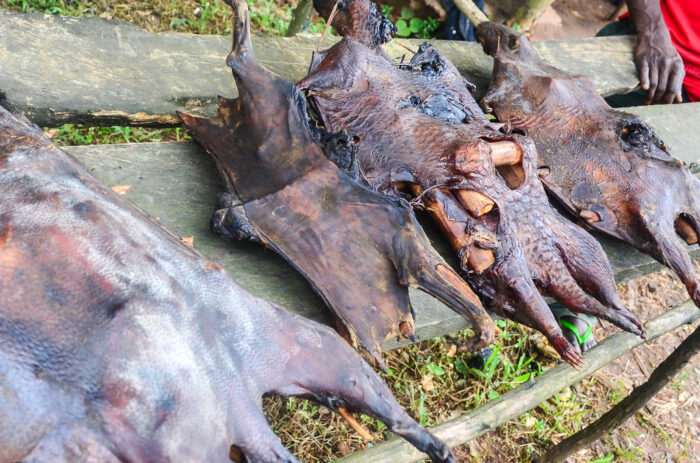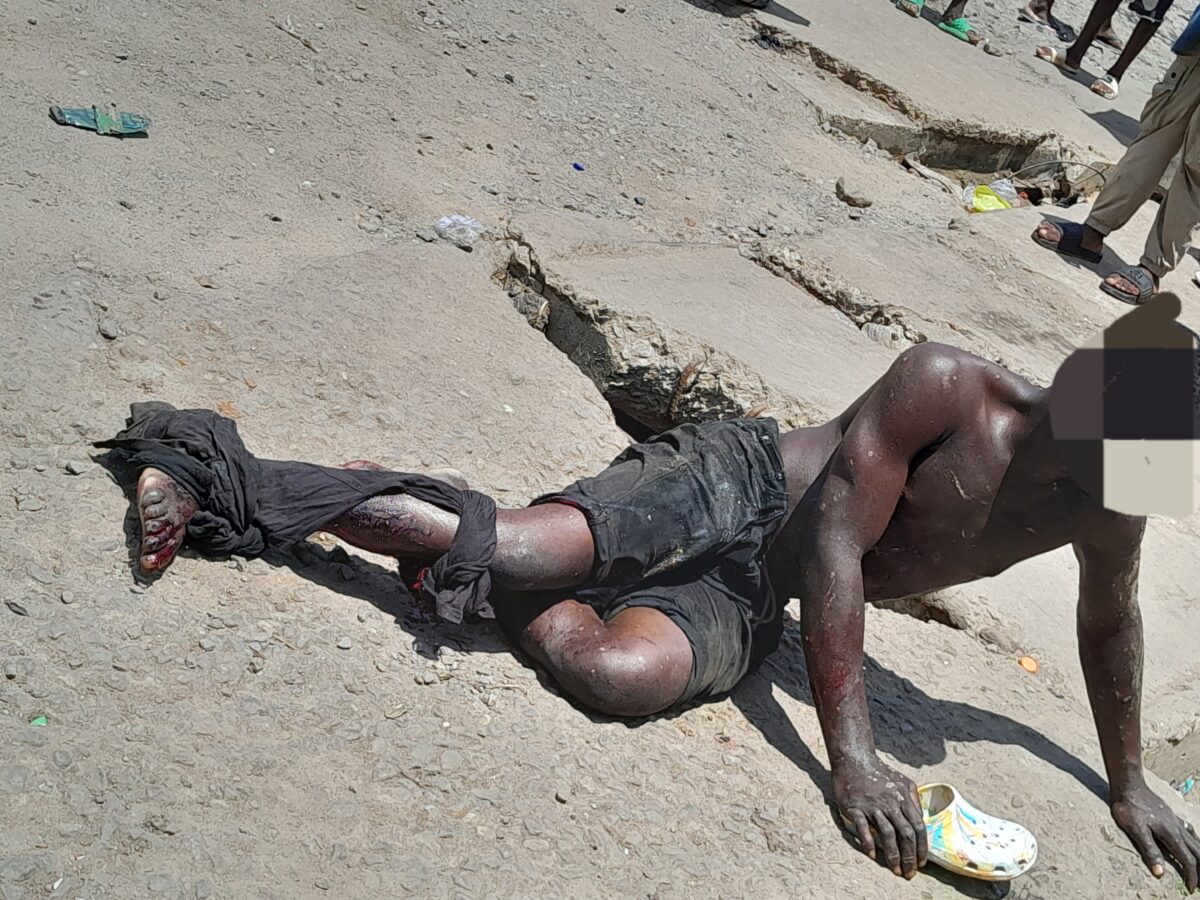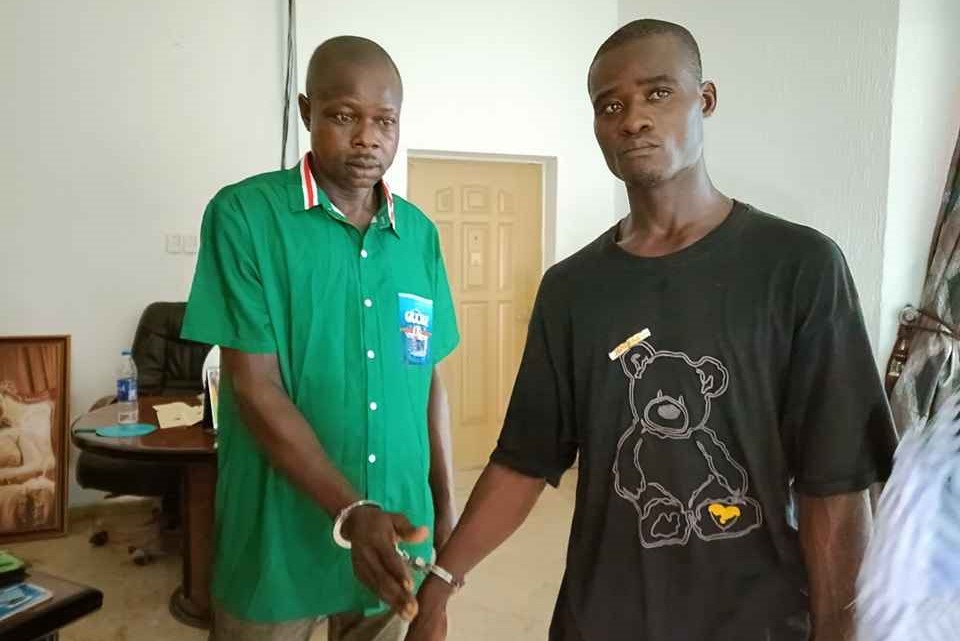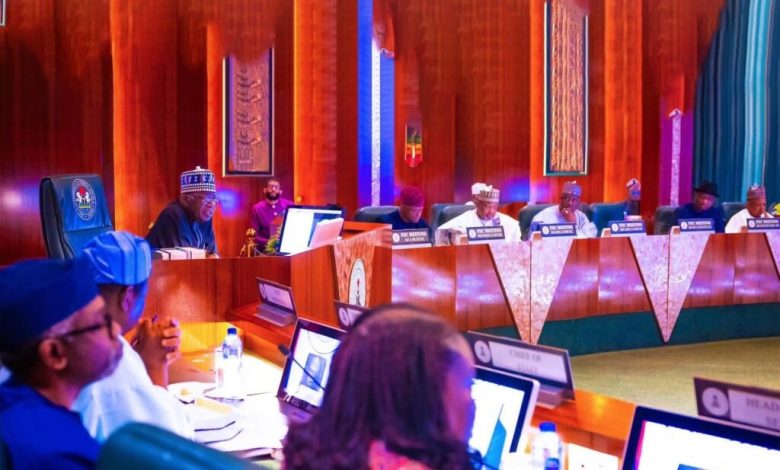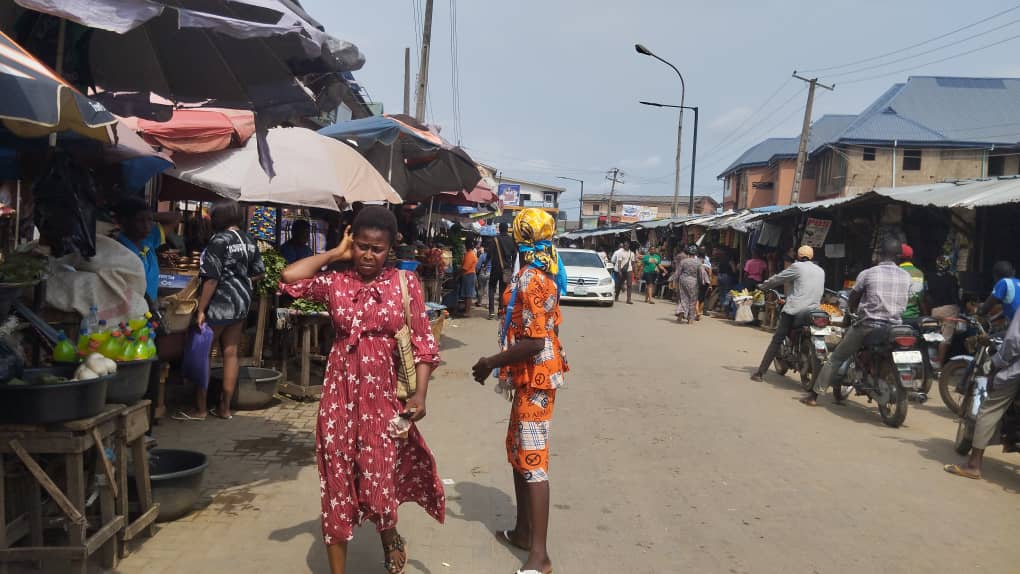Imagine leaving one’s home early in the morning to never return alive. This was the experience of a bovid that Odeyemi Hammed attacked and killed in a forest in the Oloogun area of Iwo, Osun State, on March 5, 2023.
A look at Nigeria’s wildlife shows a grim picture: an environment battling with terrorism. This is clear in the decline in the quantity and quality of wild animals.
READ ALSO: What to Know About Anthrax, a Deadly Disease Claiming Lives in West Africa
FIJ spoke with hunters in Osun and Ondo states to gain insights into their motivations for killing wild animals and how they kill them.
According to local hunters interviewed by FIJ, it is only on paper that the government is sympathetic to the survival of wild animals, as government officials are fond of consuming bushmeat, particularly in local food canteens and clubhouses.
Morufu Raheem, a local hunter in the Bode-Osi community of Osun State, told this reporter that he kills at least two wild animals in a week with his traps set on farmlands.
“Killing bush animals isn’t a big deal for me. Through my traps, I get at least two in a week,” Raheem said. “If it is big, I take it to food vendors to sell.”
Raheem told FIJ that he had killed the duiker, the bushbuck, and the grasscutter. “In fact, a few days ago, I killed a monkey. You could have been lucky to see it before I sold it. Planting activities have shifted my attention away from hunting for now. However, I have some hunter friends that could get one for you with just N3,000.”

There are 32 game reserves established by the government for protecting endangered animals. In the National Park Service Act 1999, the management of the country’s game reserves and education of the public on animal rights are vested in the National Parks Service of Nigeria led by a conservator-general.
Among others, the park is to “encourage general education in the knowledge of wild and domestic animals, fauna and flora and vegetation by publishing or sponsoring the publication of the results of research, particularly in relation to problems affecting Nigeria.”
Concerns about the safety of forest animals in Nigeria expressed as far as back as the 1930s are as fresh today as they were decades ago. Several publications appeared in The Nigerian Field, later renamed Nigerian Field Society, documenting the consistent decline in animal populations in many parts of Nigeria.
A report of wildlife survey conducted by WildAid, a wildlife conservation organisation unveiled in 2021, revealed that “Nigeria has fewer than 50 lions, 100 gorillas, 500 elephants and between 1,400 to 2,300 chimpanzees left in the wild. Between 2016-2019 [sic], over half of the pangolin scales seized globally came from Nigeria. The illegal wildlife trade is estimated to be worth between $7 billion and $23 billion annually.”
While the need to prioritise game preservation has been officially demonstrated in the creation of game reserves, its attendant gains appear limited. Much has not been achieved in the enforcement of regulations.
INDISCRIMINATE KILLINGS
Despite the existing body of laws, indiscriminate hunting and shooting still run effectively in both protected and unprotected forests across the country.


READ ALSO: REPORTER’s DIARY: Kano Community Where Humans, Cattle Drink From Same Lak
Wildlife destruction is chiefly caused by poverty, lack of education, demands for consumption and weak surveillance system on the side of the game reserves’ authorities, FIJ can report.
In the course of engaging the hunters, none of them said they had been arrested for poaching before, despite killing from forest reserves and adversely destroying the wildlife ecosystem.
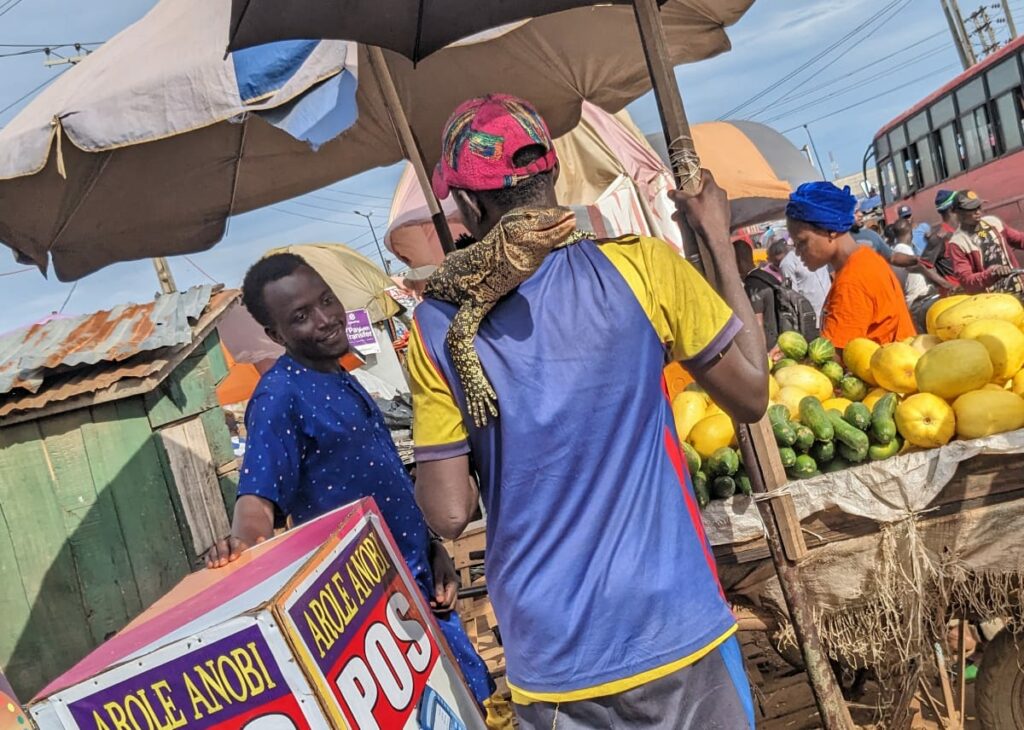
“As long as there are consumption demands for bushmeat at food centres, I don’t think we can stop killing them. Almost everyone likes to garnish their pounded yam with bushmeat. Even our leaders are fond of eating it. They find it fashionable to do that. If government leaders are doing that, how much more we the commoners?” Ako, a hunter, told FIJ.
From time immemorial, hunting has been a part of Nigeria’s traditional vocations, and it has been passed from one generation to the other.
Afolabi Kunle, a young hunter, described hunting as his side hustle. “I can say hunting is something I learned from my father. It is a vocation that we do with a lot of juju because there are spirits among the wild animals. In this community, almost every restaurant sells bushmeat. Many people eat it because it serves as source of protein.”
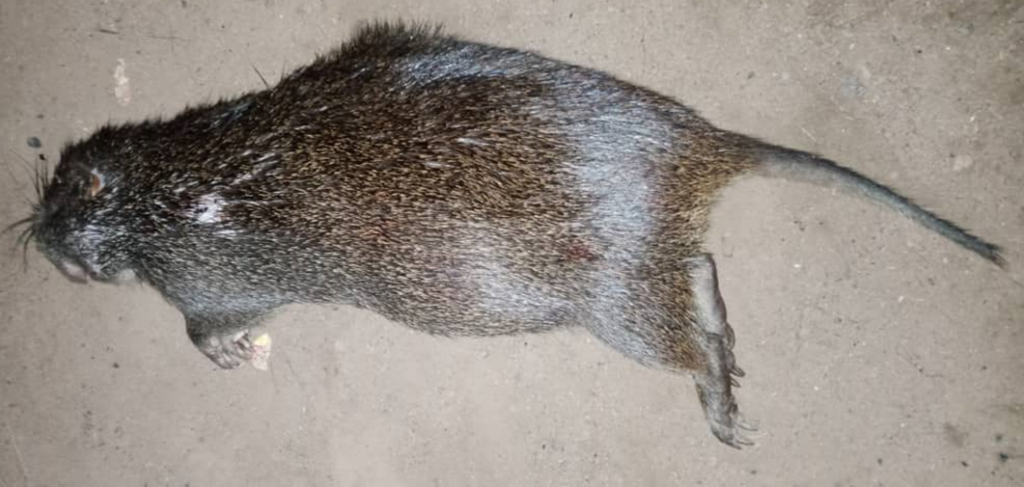
Kunle said if cows are wild animals, they could have been exterminated like elephants and other big animals in the bush with the way hunters, driven by public desire and monetary gains, constantly raid forests.
“An average hunter is poor in this country. Naturally, when one is poor, one would be propelled by the profound need to survive, basically. As far as I am concerned, hunting is a skill and that automatically tells me hunters are using their skills to live,” Sikiru Ganiyu, a senior secondary school teacher in Ondo State, said.
Tope, a food vendor in Barika, Iwo, Osun State, described bushmeat as a hotcake. “Bushmeat sells faster than normal beef here,” she said.
Our sources agreed that bush animals are increasingly becoming hard to come by in the bush. The hunters explained that hunting is seasonal. Rainy seasons make it harder to hunt as animals stay in the dens for most of the time, while dry season is a booming hunting period as the period witnesses extensive bush-burning and deforestation.
In effect, the country’s biodiversity is threatened. Aside from the dangers posed by eating bush animals, arbitrary exploitation of wildlife destroys the natural environment.

Within the context of illegal wildlife trade, Nigeria occupies a prominent spot worldwide. Indeed, it has become a frontier for the trade. A World Wildlife Crime Report published in 2020 by the United Nations Office on Drug and Crime described Nigeria as “a dominant collection and transit point over the last four years.”
Subscribe
Be the first to receive special investigative reports and features in your inbox.


